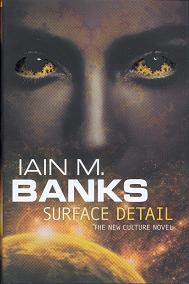One of the things that stayed with me the most from Iain M. Bank’s The Player of Games more than twenty years ago was the following:
Another revelation struck Gurgeh with a force almost as great; one reading—perhaps the best—of the way he’d always played was that he played as the Culture. He’d habitually set up something like the society itself when he constructed his positions and deployed his pieces; a net, a grid of forces and relationships, without any obvious hierarchy or entrenched leadership, and initially quite profoundly peaceful.
In all the games he’d played, the fight had always come to Gurgeh, initially. He’d thought of the period before as preparing for battle, but now he saw that if he’d been alone on the board he’d have done roughly the same, spreading slowly across the territories, consolidating gradually, calmly, economically… of course it had never happened; he always was attacked, and once the battle was joined he developed that conflict as assiduously and totally as before he’d tried to develop the patterns and potential of unthreatened pieces and undisputed territory.
The Player of Games is of course all about playing a particularly complicated game, insanely complicated even, which functions as the central controlling metaphor for a rather nasty interstellar empire the Culture wants to Do Something About. It made sense for the resolution to be about playing the game the Culture way, but ever since I’ve been looking at Grand Strategy and 4X games and how to play those the Culture way, starting with Master of Orion way back when.
Now last week I started getting into Sid Meier’s Civilisation V. Yes, I know, I’m so ahead of the times. After playing a first few games, I started thinking how I would play this game as the Culture. Obviously, it means going for the science victory rather than just attacking and conquering every other player, but how else should I play?
As we know from the Culture novels, the Culture isn’t military aggressive, but can respond quickly and with overwhelming force when provoked. This means building up an empire in Civ V that’s scientifically advanced, with enough resources (gold, otherwise) to quickly build an army when necessary. The other aspect of the Culture is that it is an exploring and flexible civilisation, continueously establishing new outposts and welcoming new peoples, as well as letting others leave. In Civ V terms this means therefore lots of scouting out the world, quickly establishing new colonies and forging ties with other civilisations and city states, including the occasional annexation of a city state.
As for simulating contact, there are the scouts and the diplomatic functions, trading directly with other civs, giving gifts and pledging protection to city states, with the spies acting in the background as Civ’s version of Special Circumstances. On the whole a Culture civilisation should focus on discovering new territories and settling them, improving the empire’s economy and keeping an eye on the more aggressive fellow civs. When need be a bit of dirty trickery should provide the excuse to start a war against an aggressor civ, after which the military forces should be hidden or dismantled again.
It may not be as much fun to play the Culture as it would be to go full Gandhi on the world and let rain the atom bombs, but it is an interesting challenge…
